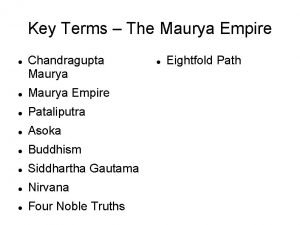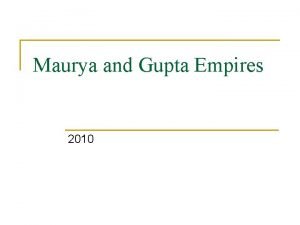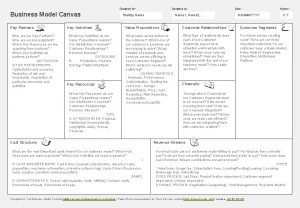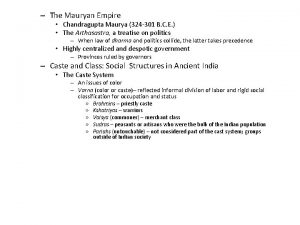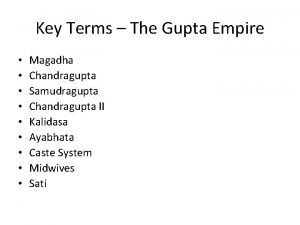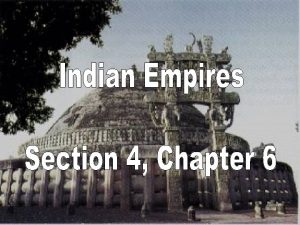Key Terms The Maurya Empire Chandragupta Maurya Empire








- Slides: 8

Key Terms – The Maurya Empire Chandragupta Maurya Empire Pataliputra Asoka Buddhism Siddhartha Gautama Nirvana Four Noble Truths Eightfold Path

Chandragupta Maurya (ruled 321298 B. C. ) Managed to use the confusion caused by the sudden death of Alexander to establish an empire. Ruled over a small territory in the Ganges Valley. Would gain control of Northern India and break up his territory into small provinces

Maurya Empire Chandragupta would establish the Maurya Empire in India. Captial would be established at Pataliputra off of the Ganges River. Established a large bureaucracy and used his agents to oversee the other provinces.

Asoka Asoka, grandson of Chandraupta would expand the Maurya Empire to control almost all of India. Would lead a conversion to Buddhism after an extremely brutal battle. The Empire would break up shortly after his death.

Siddhartha Gautama S. Gautama → prince who founded the Buddhist philosophy in the 6 th Century B. C. According to a prophecy, Siddhartha was to either to become a great king or a holy man. He would be sheltered to prevent the latter. Upon being able to see the world outside, Gautama would meditate until he reached enlightenment.

Buddhism Buddhism → religion in which believers seek an ultimate enlightenment and union with the universe. Buddhists believe that by having great karma, one can achieve ultimate enlightenment or nirvana. Buddhists do not believe in the caste system and believe that reincarnation is a cycle one wishes to escape. There are two major guidelines and beliefs that Buddhists agree to: The Four Noble Truths and the Eightfold Path.

The Four Noble Truths are the basic beliefs of Buddhists that once accepted allow for the path of enlightenment to be opened. 1. All life is suffering. 2. The cause of suffering is selfish desire. 3. The only way to end suffering is to end desire. 4. The only way to end desire is to follow the Eightfold Path.

The Eightfold Path serves as a guideline for behavior within the religion of Buddhism. They are; Right views → viewing reality as what it is Right intention → intention of renunciation, freedom and harmlessness Right speech → speaking in a truthful way Right action → acting in a non-harmful way Right Livelihood → a non-harmful livelihood Right effort → an effort to improve Right mindfulness → awareness to see things for what they are Right Concentration → meditation

